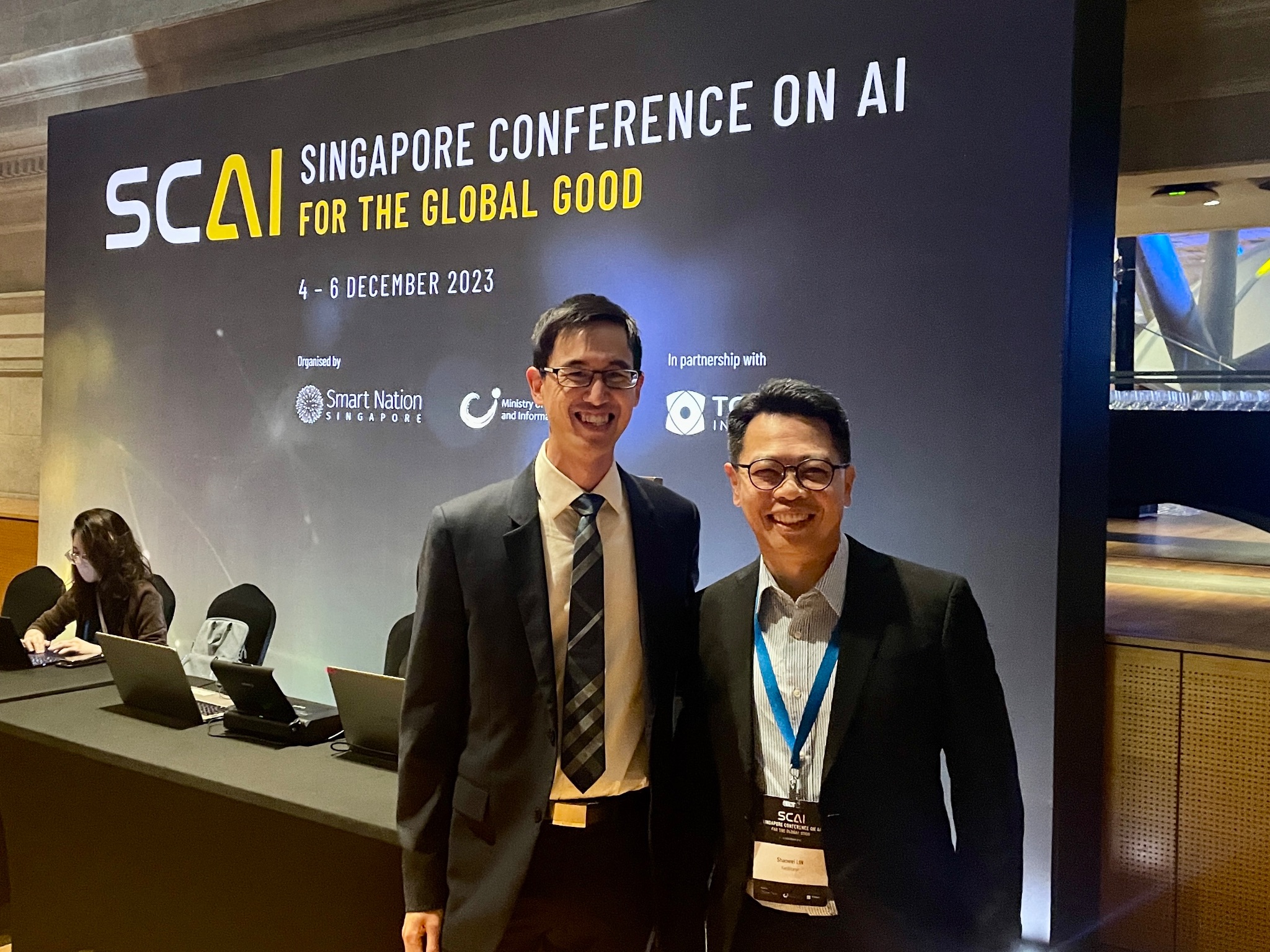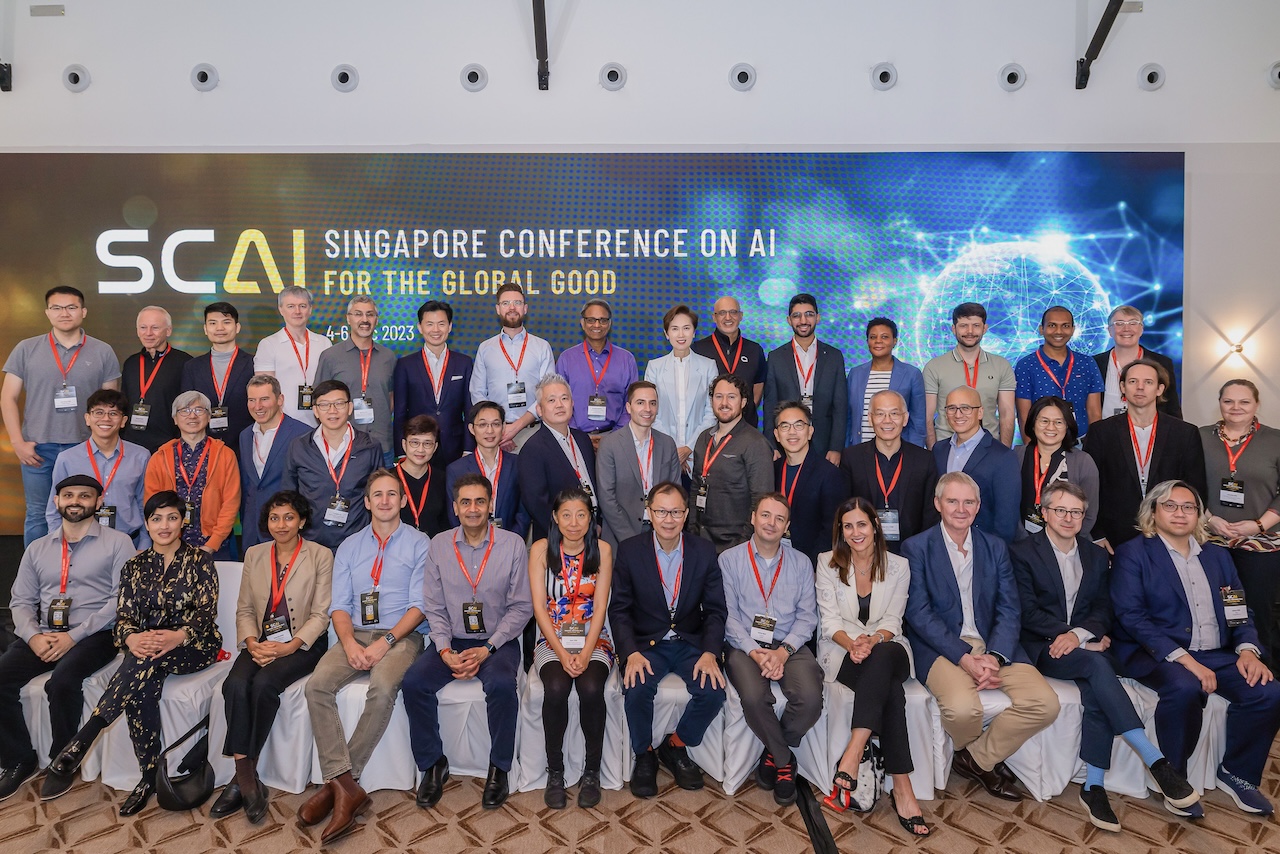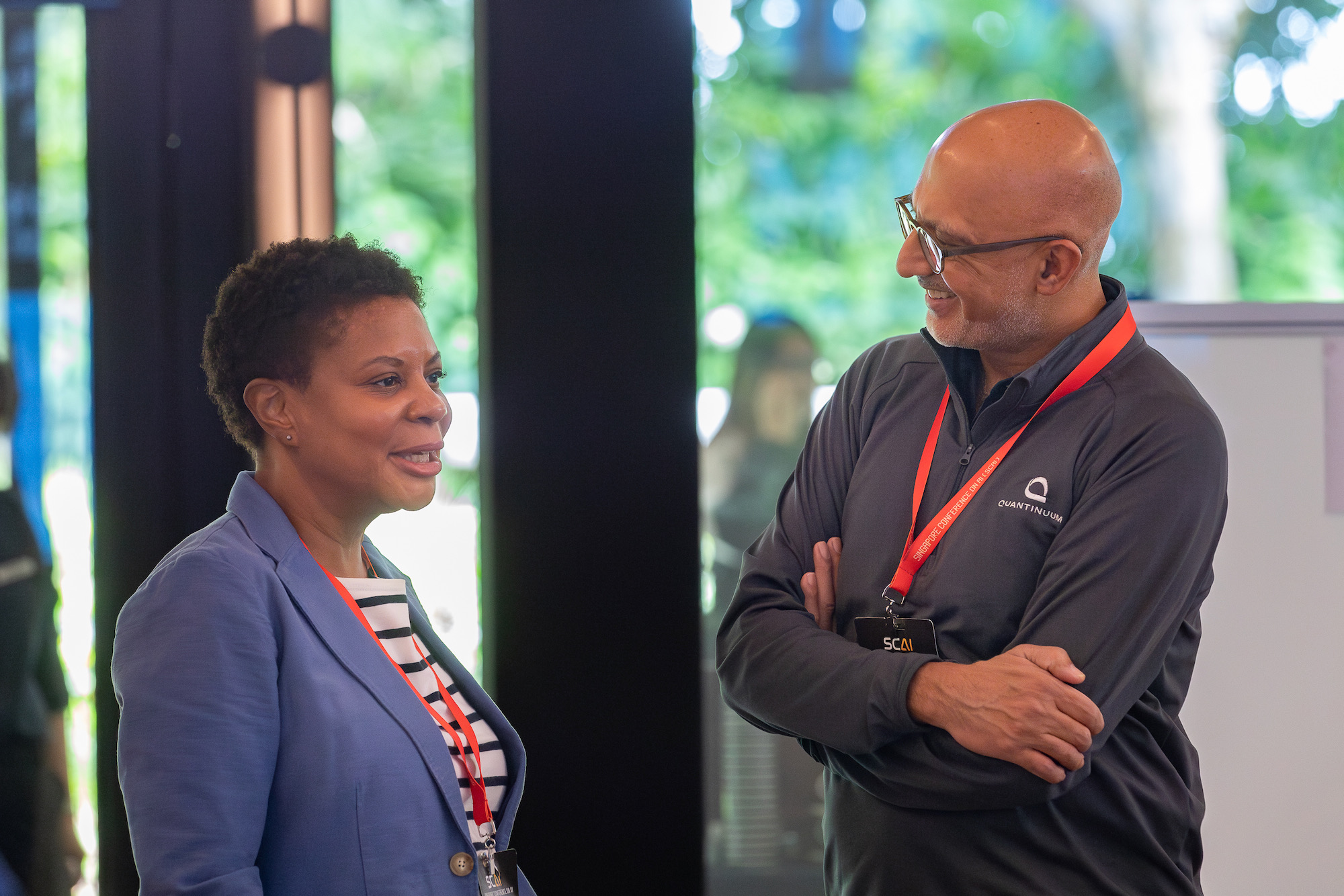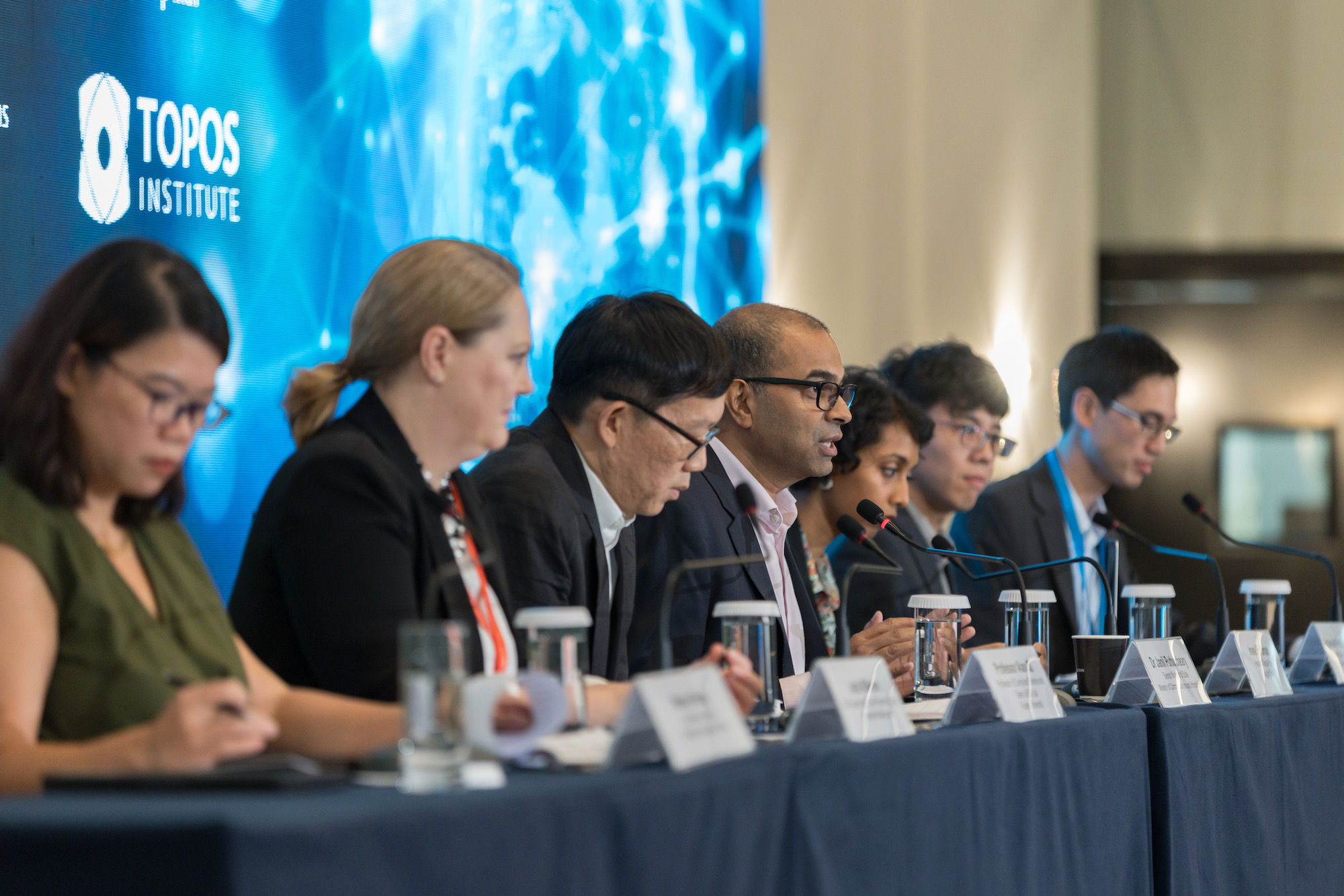SCAI — AI for the Global Good
In December, Shaowei and I spent a week in Singapore co-directing and co-facilitating the inaugural Singapore Conference on AI for the Global Good, or SCAI. A partnership between Topos and the Government of Singapore, SCAI had two, related goals: (1) to build an international, cross-sectoral community of leaders who will work together to ensure AI serves the global good, and (2) to facilitate shared understanding by working together to identify foundational, yet tractable, questions about AI and the global good.
Forty-two delegates participated in SCAI, and they worked hard. Within three days of intense debate and joint authoring, the delegates wrote and published a 74 page report from scratch, identifying and articulating 12 critical questions of AI that, if answered, will enable AI to be developed and deployed for the global good. Through intense discussions and indicative votes that gradually whittled 170 questions down to just 12, the delegates identified priorities spanning governance, risk management, and safety evaluation, to scientific discovery, education, and mechanisms for deployment for global good.
The delegates were each esteemed experts in their own right – including representatives in policy and science from America, Asia, Europe, and the Middle East; professors across computer science, engineering, public policy, and philosophy from leading universities including MIT, Stanford, Princeton, Oxford, Peking University and the Australian National University; AI companies including OpenAI, Anthropic, DeepMind, and Meta; and nonprofits focussed both on technical matters, like the Beijing Academy of AI, and social matters, like the Abdul Latif Jameel Poverty Action Lab. Four members of the UN High Level Advisory Board on AI joined us, and used the report to inform discussions at the first UN High Level Advisory Board on AI meeting in New York later the same week.
It is certain that AI systems and technologies will reshape the world in the coming years. How the world will be reshaped, however, is an open question. At Topos, we hope that we will be able to build technologies that unlock new ways of collaborating with each other for shared benefit: discovering new materials and new medicines that improve our lives; helping people understand their community in new ways that empower them; facilitating more responsive forms of shared enterprise, that better take into account all the complexities and stakeholders previously external to the structure. We hope for a more equitable, more caring, more healthy world.
Yet this is far from certain, and we must also work together to avoid a future where such technologies work against the common good, via designs and deployment that displace people from their jobs and communities, entrench societal biases and inequality, cause environmental damage, lead to large-scale industrial accidents that cost countless lives, and perhaps cause irreparable harm to society and humanity.
The world’s attention is on this, and often when bringing together an expert group, opinions have already been formed — some see AI as more of an opportunity, others focus on the risks. Some see short term, social risks; others grand existential threat. Our goal was to foster an environment where people could have frank, personal exchanges in a collaborative way, breaking out of the dominant conversational ruts. In particular, we wanted to come together to identify the important issues, rather than drift into the space of presenting solutions before agreeing on common goals. Most important was to simply get to know and trust each other. It was a privilege to have this group clear their schedules to join us in Singapore for three full days of open, intimate, and sometimes heated conversations.
To facilitate this aim, we worked with Singapore to put together a completely discussion-based format, centered about the search for foundational yet tractable questions. Each question has three sections. First, the identification of the context and assumptions behind the question. When we disagree, or search for foundational issues, it’s often important to step back and ensure we review the assumptions informing our perspective, and make them explicit, if not ensure they’re shared. Next, the phrasing of the question in a detail-oriented way, making clear its exact meaning and why it is foundationally important – that is, what other important questions in AI would be unlocked by good answers to the core question. Finally, indicators of progress, which help describe why the question is tractable, and concretely what a successful response might look like.
The process was designed to get a holistic perspective that synthesised the views of diverse group of people, responding fluidly to their exchanges in real time. While a completely different format – a workshop rather than open source scientific modelling software – the core design principles echo those present in our work on collaborative modelling and connected intelligence. In particular, the delegates collaborated to build artefacts (question statements), that have a well-designed, structured form (the question framework), while maintaining shared visibility of the totality (shared, live versions of the draft questions, as well as status summaries and requests for help), while holding a holistic perspective as an explicit, shared goal (a report on foundational, tractable questions about AI and the global good).
Convening such meetings is an important part of the Topos mission. While our existing core expertise is in technical aspects of technology research, technologies have both social and technical aspects, and we cannot build tecnhologies effectively for public benefit without being deeply integrated into the world of technology sociology, policy, and deployment.
We’re especially excited to partner with Singapore on this project, under the auspices of Minister Josephine Teo and her Ministry of Communications and Information. Singapore’s willingness to bring in world experts, including highly technical ones, so senior civil servants could seriously engage with and listen to them, and to embrace the uncertainty and diversity of perspectives around AI, sets an example for governments around the world to follow. To, moreover, do this in the search of how to benefit not just Singapore, but the world at large, and to publish the results for everyone to read, speaks to their forethought and global citizenry.
It was a delight to work with our incredible conference co-directors Ruimin He, Chief AI Officer of Singapore, and Wanyi Weng, Director of the National AI Office & Government Data Division, and their excellent teams, who worked weekends, late nights, and early mornings to make the event a success. We were also delighted to work with the ever-insightful Professor Vaughn Tan at the UCL School of Management. For more detail about the design and logic of the conference, check out his excellent article here – in a lovely metaphor, he describes SCAI as a ‘hot air balloon conference’.
The devotion put into the event by both the delegates and the organising teams was humbling and inspiring – moments intense like ‘table 3’ still engaged in deep debate hours after the close of a long day’s writing, determined to absorb each other’s perspectives on AI and safety, as well as moments light-hearted like an organiser’s mother dropping off a basket of mangosteen and other tropical fruits so delegates could share their first taste. It speaks to the real commitment around the world to ensuring AI serves the global good.
Finally, of course, please read the report, and learn what the SCAI delegates discussed as they searched for the foundational, tractable questions about AI for the global good:
Singapore Ministry of Communications and Information & Smart Nation Group, in partnership with Topos Institute. (2023). Preliminary Conversations Towards AI for the Global Good: The SCAI Questions. Proceedings of the Singapore Conference on AI for the Global Good, 4-6 December 2023, Singapore. Available at: https://www.scai.gov.sg/findings.



